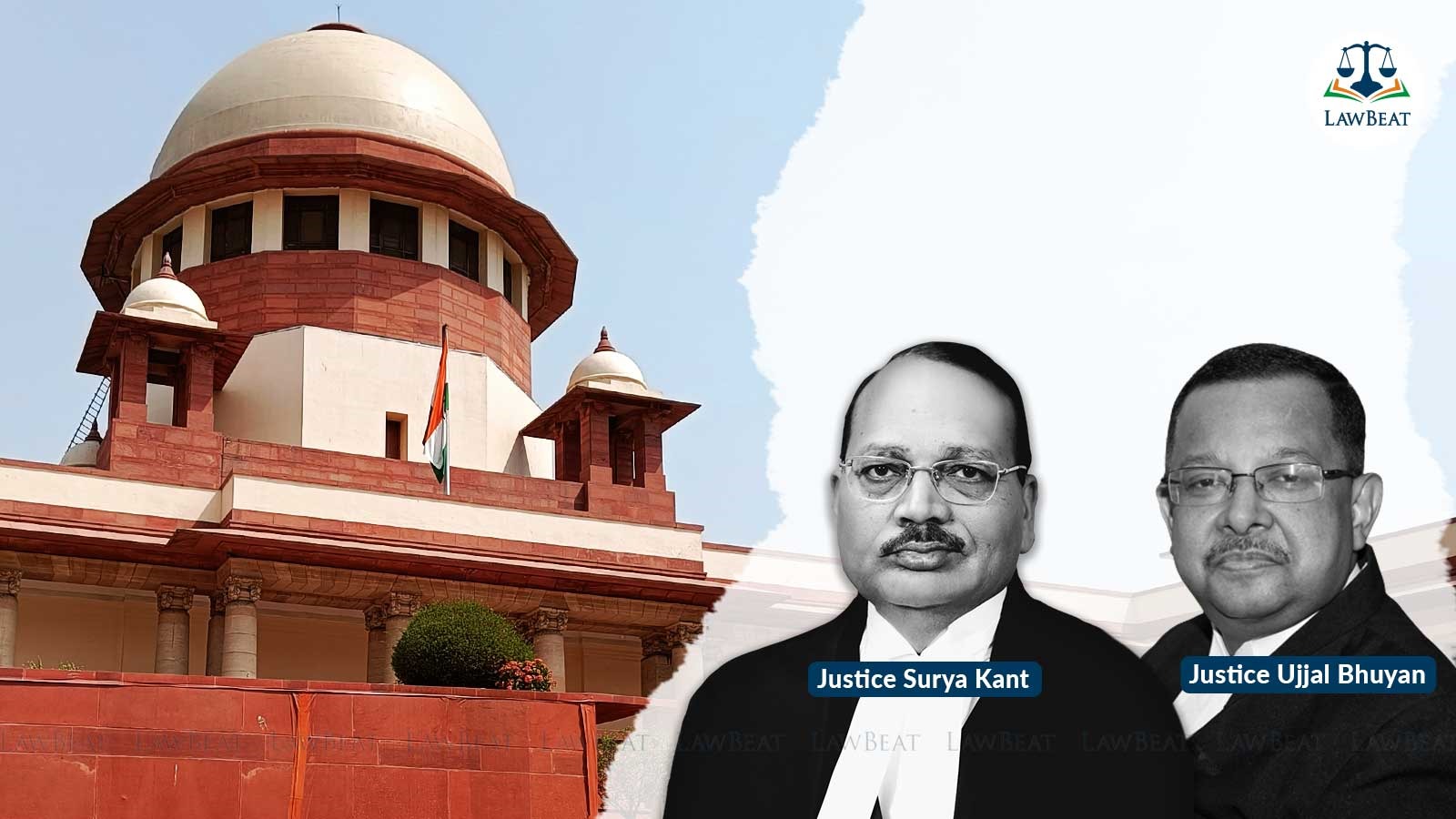Award Alone Not Enough, State Must Ensure Fair Compensation to Land Owners: SC

X
Court ordered authorities to pay compensation in terms of the 2013 Act for the land acquired in 1986 in Mysore
The Supreme Court has said that mere passing of an award would not absolve the State authorities of their statutory obligation to offer fair and just compensation to the expropriated land owners as denial thereof will be directly in the teeth of Article 300A of the Constitution.
A bench of Justices Surya Kant and Ujjal Bhuyan also said non payment of compensation would vitiate the acquisition proceedings and would be liable to be quashed.
Court ordered authorities to pay compensation in terms of the Right to Fair Compensation and Transparency in Land Acquisition, Rehabilitation and Resettlement Act, 2013 for the land acquired in 1986 in Mysore.
Appellants, Jayalakshamma and others were owners of land measuring 1 acre 23 guntas and land measuring 37.5 guntas in Hinkal Village, District Mysore, Karnataka. Their land was proposed to be acquired by a notification on April 01, 1981 issued under Section 16 of the City of Mysore Improvement Act, 1903, which was corresponding to Sections 4 and 6 of the Land Acquisition Act, 1894.
An award was passed on April 21, 1986. The compensation amount was neither offered to the expropriated land owners nor deposited before the reference court.
According to the appellants, physical possession of the acquired land was also not taken and there were several dwelling houses, commercial premises, a poultry farm, 64 coconut trees, 50 teak-wood trees, 30 silver oaks, 10 jack fruit trees, 21 tamarind trees and 20 arecanut nut trees, along with a bore well that existed at the acquired land.
On the other hand, counsel for the respondents strongly refuted the appellants’ claim regarding retention of physical possession, as according to him, a huge chunk of 900 acres of land was acquired for the formation of the Vijayanagara Layout Scheme in Mysore City and possession of the entire land, including the small chunk owned by the appellants, was taken on October 09, 1992.
The court noted that it seemed that nothing moved further till the appellants filed a writ petition before the Karnataka High Court for quashing of the acquisition. It was thereafter only that the respondents deposited a sum of Rs 2,06,332 compensation, on September 11, 2019.
The High Court eventually dismissed the writ petition on the ground of constructive res judicata as it appeared that some previous writ petitions challenging the subject acquisition had been dismissed. The appellants tried their luck in an Intra-Court Appeal, but that too had been turned down by the impugned judgment on March 17, 2020.
Without going into question whether physical possession was taken, the top court noted that the fact remained that no amount of compensation was offered or paid to the appellants till commencement of the second round of lis through the writ petitions filed in the year 2014, and it was much thereafter that the compensation amount was deposited in 2019.
"In our considered view mere passing of an award on 21.04.1986 did not absolve the respondents of their statutory obligation to offer fair and just compensation to the expropriated land owners. Denial thereof is directly in the teeth of Article 300A of the Constitution of India," the bench said.
That apart, the bench said, the respondents had miserably failed to show any provision either under the CITB Act or under the 1894 Act, which could enable them to withhold the payment of compensation endlessly, which comprised over 34-35 years in the instant case.
"Non-payment of compensation, in the given facts and circumstances of this case, in our considered opinion, has vitiated the subject acquisition and the same is liable to be quashed," the bench said.
The court therefore examined the question whether as a consequence to the quashing of the acquisition, the possession should have been restored in favour of appellants.
"We cannot be oblivious to the fact that the appellants’ land is a small part of a big chunk of 900 acres of land acquired for regulated development of an urban area. The release of a parcel of land can affect the development activities or disrupt basic amenities to be provided in the newly developed urban area. Still further, the small parcel of land owned by the appellants is not likely to be of any use unless it is integrated as a contiguous part of the development plan," the bench said.
The court also took notice of the fact that the Right to Fair Compensation and Transparency in Land Acquisition, Rehabilitation and Resettlement Act, 2013 has essentially been brought into force as a welfare measure to minimize the hardship of expropriated land owners.
"The scheme of the Statute contemplates an exhaustive procedure, which is required to be followed by the Prescribed Authority for acquiring land under the 2013 Act," it said.
Using its extraordinary power under Article 142 of the Constitution to do complete justice, the bench allowed the appellants to submit their objections, confined to the assessment of compensation in accordance with the provisions of the 2013 Act, within a period of four weeks.
Court directed for reassessment of the market value of the land after fixing the cut-off date on June 1, 2019 and passing of award within two months and depositing of the money with the reference court. With this, the physical possession would be vested with the authorities for all purposes, court ordered.
"The appellants shall not resist the re-taking of possession and/or utilization of the land for the public purpose for which it was acquired. No claim for the release of land from acquisition shall be entertained," the bench ordered.
Case Title: Jayalakshamma & Ors Vs The State of Karnataka & Ors
Next Story
